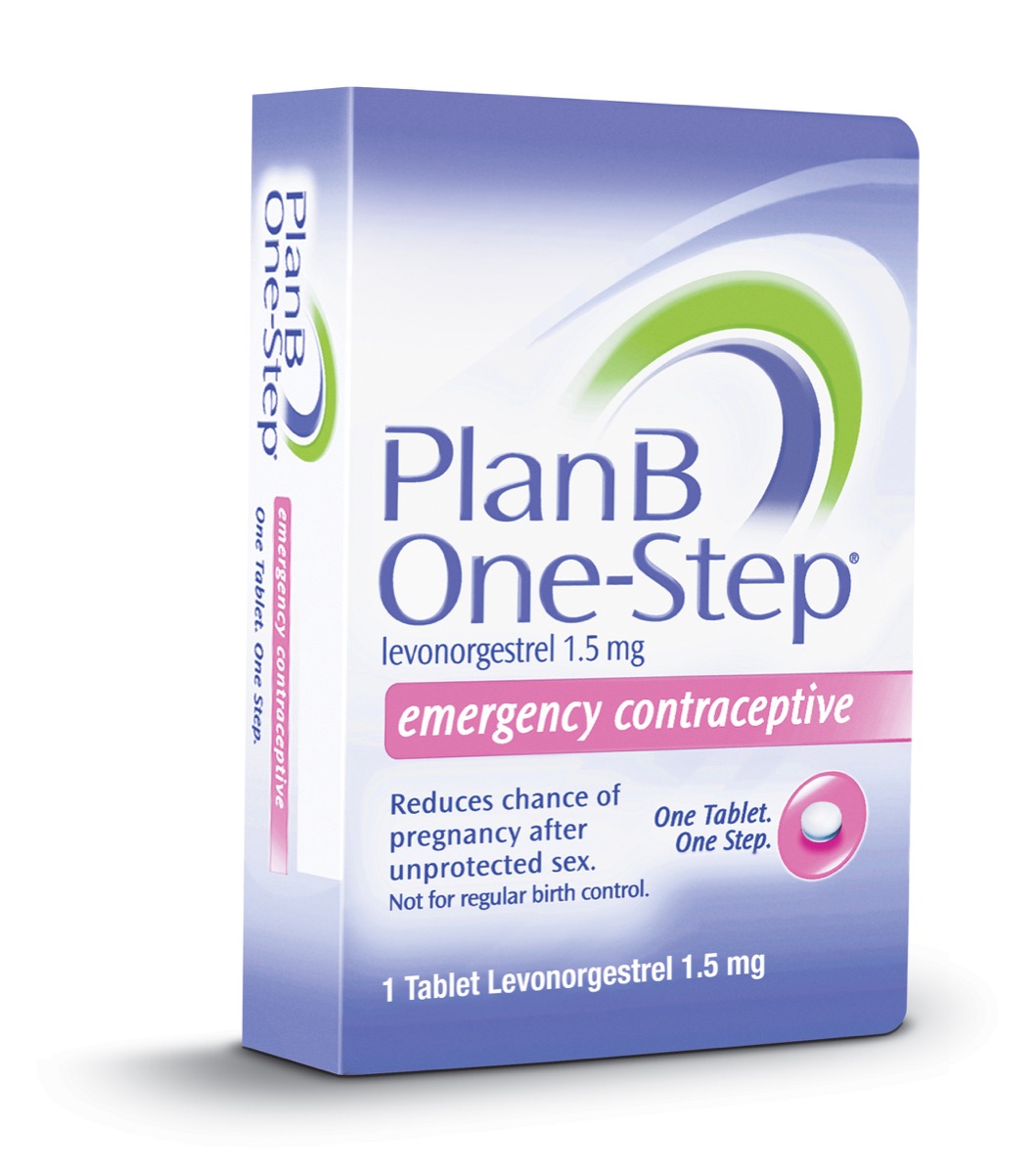8 Common Questions About Plan B—Answered

Things don’t always go perfectly to plan. And while certain misfortunes are definitely frustrating—things like oversleeping before a big meeting or misplacing your car keys when you’re late for a party—perhaps none inspires such dread as realizing your primary form of birth control has failed.
Of course, this is hardly an unusual occurrence. According to the experts at BirthControl.com, you can expect about one in 250 condoms you use to break. The pull-out method isn’t an effective alternative either; according to Planned Parenthood, it has a failure rate of one in five over the course of a year.
But no matter how common it is, having your birth control fail you is still a scary situation that can throw a wrench in your sex life—and, in many cases, every other part of your life, too. Fortunately, there are things you can do to minimize your chances of an unplanned pregnancy. Enter: Plan B, a form of emergency contraception you can take to decrease the odds of pregnancy after unprotected sex.
Now regarded as the go-to backup for preventing pregnancy (and the number-one form of emergency contraception recommended by OB/GYN’s), Plan B One-Step is the pill you’ve probably heard of, but may not completely understand. From where to get it to how Plan B works, here are the honest, factual answers to your pertinent questions about the morning-after pill. The more you know.
What is Plan B?
At its core, Plan B is an over-the-counter hormone pill that helps prevent pregnancy when taken within 72 hours (3 days) of unprotected sex. It is not an abortion pill and it will not cause birth defects if you take it while pregnant. It is also not a substitute for regular preventative birth control methods and does not protect against STIs.
How does Plan B work?
Here’s the nitty-gritty: Plan B contains a hormone called levonorgestrel, which is essentially just a fancy name for a lab-made version of progesterone (the hormone your ovaries secrete each month that assists the menstrual cycle). You can also find levonorgestrel in your daily birth control pill, but Plan B is packed with it at a higher dose, which is part of how it helps halt potential unplanned pregnancies.
Scientific research supports that levonorgestrel, the active ingredient in Plan B, works by preventing ovulation, and will not impact the implantation of a fertilized egg. Once taken, the hormone levonorgestrel is released into your body and acts to stop the release of any eggs into the fallopian tube for fertilization. No ovulation means there are no eggs for the sperm to fertilize. (Remember “the birds and the bees”?) Effectively, the goal of the pill is to prevent the pregnancy process before it can begin, which is an important distinction from the abortion pill.

How effective is Plan B?
According to the pill’s official FAQ, it is most effective when taken exactly as directed (namely within that three-day window). When taken according to its directions, 7 out of every 8 women who could have gotten pregnant will not after taking Plan B. According to Planned Parenthood, the pill is 75 to 89 percent effective at preventing pregnancy. Again, it won’t do anything for people who are already pregnant.
Where can I buy Plan B?
The counter at your local pharmacy will carry Plan B, and you don’t need medical insurance or an ID to buy it. Plan B One-Step typically costs between $40 and $50, according to Planned Parenthood.
How often can you take Plan B?
If you’ve already taken Plan B pill before, you’re certainly not alone. “Almost half of women (surveyed) have taken Plan B, or another form of emergency contraception, which means half of you and your group of friends has likely taken emergency contraception,” according to a presentation given by Dr. Jennifer Berman, urologist and sexual health expert at The Berman Women’s Wellness Center in Beverly Hill, on behalf of Plan B.
And the good news is, if you’ve already taken it, there’s no reason you can’t take it again. It will be just as effective the second or third time you take it as long as you take it according to the directions. To reiterate, though, Plan B is not a form of regular birth control and should only be used if Plan A fails.
What are the side effects of Plan B?
The most common side effect of any emergency contraception pill is a change in your period. Taking any form of emergency contraception can make it lighter or heavier, or have it arrive earlier or later than usual.
“These are always temporary, especially when the pill is used correctly, i.e. very rarely/occasionally and not regularly and repeatedly,” Iffath Hoskins, M.D., clinical associate professor in the department of obstetrics and gynecology at NYU Langone Health told Woman’s Health.
Of course, how Plan B affects your period depends on when you take it in your cycle, so be sure to be in tune with your body after taking it. According to the Mayo Clinic, you should take a pregnancy test if you don’t get your period within three weeks of taking emergency contraception.
Upset stomach, headache, dizziness, and tender breasts are also potential side effects of the morning-after pill.
How long do Plan B side effects last?
Plan B One-Step notes that you may feel side effects such as upset stomach, headache, dizziness, and tender breasts for a day or two after taking the pill, and that you should be aware of potential spotting and changes in your period a few weeks after taking it.
How long is Plan B effective?
Fret not: taking Plan B will not impact your fertility or your chances of getting pregnant long-term. However, it does not provide long-term protection against future pregnancy. Each Plan B pill only helps to prevent pregnancy for one incident of unprotected sex. As an emergency birth control method, it does not act as a regular means for continuously preventing pregnancy. Sexually active people who are looking for a safe means of consistent birth control should consider visiting a family planning center, clinic, or Planned Parenthood to find a regular method that’s best for them.
The good thing is, people are talking about Plan B and other forms of emergency contraceptive now more than ever. “Our survey also found that nearly 95 percent of women who have taken emergency contraception aren’t worried about outsider perceptions,” Berman said. “I think what’s really awesome about this is not only have we opened up a dialogue, but women feel confident when taking emergency contraception, and they are not letting other people’s perceptions trickle into the way they feel. In the past, that hasn’t always been the case, so I love to see this shift.”
To discover more amazing secrets about living your best life, click here to follow us on Instagram!